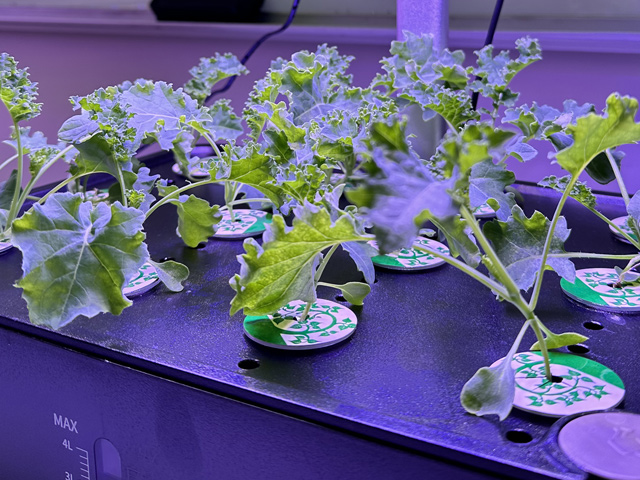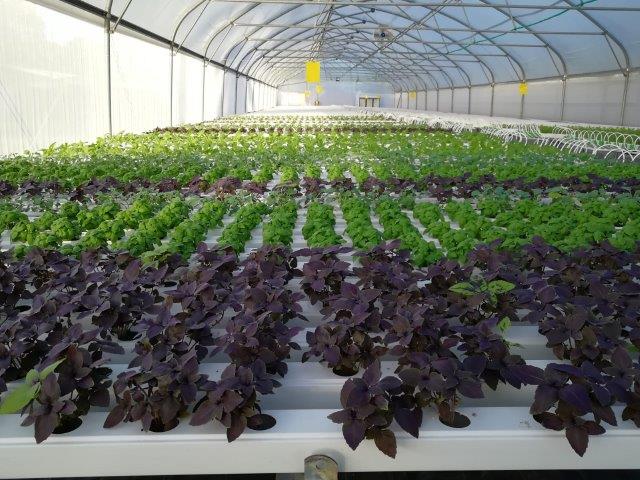The Advantages of Hydroponic Gardening

Hydroponic gardening, a method of growing plants without soil, has gained widespread popularity for its efficiency, resource conservation, and ability to produce high yields in limited space. In this blog post, we explore the numerous advantages of hydroponic gardening, showcasing how this innovative approach to cultivation is transforming the way we grow and harvest crops.
1. Water Conservation: Maximized Efficiency
One of the most significant advantages of hydroponic gardening is its exceptional water efficiency. Unlike traditional soil-based cultivation, where water is absorbed by the soil and may be lost through evaporation, hydroponics delivers water directly to the plant roots. This targeted approach minimizes water waste and allows for precise control over moisture levels, making hydroponics a sustainable option in regions facing water scarcity.
2. Increased Crop Yields: Optimal Nutrient Delivery
Hydroponic systems provide plants with a constant and well-balanced supply of nutrients, promoting optimal growth conditions. The absence of soil allows for direct nutrient absorption by the plant roots, eliminating the competition for nutrients seen in traditional farming. As a result, hydroponic crops often exhibit faster growth rates and increased yields compared to their soil-grown counterparts.
3. Space Efficiency: Vertical Farming and Controlled Environments
Hydroponic systems are inherently space-efficient, making them ideal for urban environments or areas with limited arable land. Vertical farming, a technique that stacks multiple growing layers, maximizes space utilization and allows for the cultivation of crops in vertical towers. Additionally, hydroponics can be adapted to controlled environments such as greenhouses, enabling year-round production and protection against adverse weather conditions.

4. Reduced Environmental Impact: Minimal Pesticide Use
Hydroponic gardening minimizes the need for pesticides and herbicides. The controlled environment and sterile growing medium reduce the risk of soil-borne diseases and pests, eliminating the necessity for chemical treatments. This environmentally friendly approach contributes to healthier produce and reduces the environmental impact associated with conventional agricultural practices.
5. Faster Growth and Harvest Cycles: Increased Productivity
Hydroponic systems provide an optimized environment for plant growth, resulting in faster growth cycles and more frequent harvests. The ability to control variables such as temperature, light, and nutrient levels allows for year-round cultivation, providing a continuous and reliable supply of fresh produce.
6. Nutrient Recycling: Sustainable Resource Management
Hydroponic systems allow for the efficient recycling and reuse of nutrient solutions. By capturing and treating runoff, excess nutrients can be reintroduced into the system, minimizing waste and ensuring a sustainable nutrient cycle. This closed-loop approach aligns with eco-friendly practices and reduces the environmental impact of nutrient runoff.
7. Precision Agriculture: Controlled Nutrient Delivery
Hydroponic systems enable precise control over nutrient concentrations, pH levels, and other environmental factors. This precision agriculture approach ensures that plants receive optimal nutrition, resulting in healthier crops with enhanced nutritional content. The ability to fine-tune growing conditions contributes to consistent and high-quality yields.
Conclusion
Hydroponic gardening represents a revolutionary approach to cultivation that addresses key challenges facing traditional agriculture according to this post from GuidedTo. From water conservation and increased crop yields to space efficiency and reduced environmental impact, the advantages of hydroponic gardening are reshaping the landscape of food production. As we embrace sustainable and efficient solutions to feed a growing global population, hydroponics stands out as a promising and innovative method that holds the potential to revolutionize the way we grow and consume food. Dive into the world of hydroponics and unlock the benefits of this forward-thinking approach to gardening. Happy growing!

